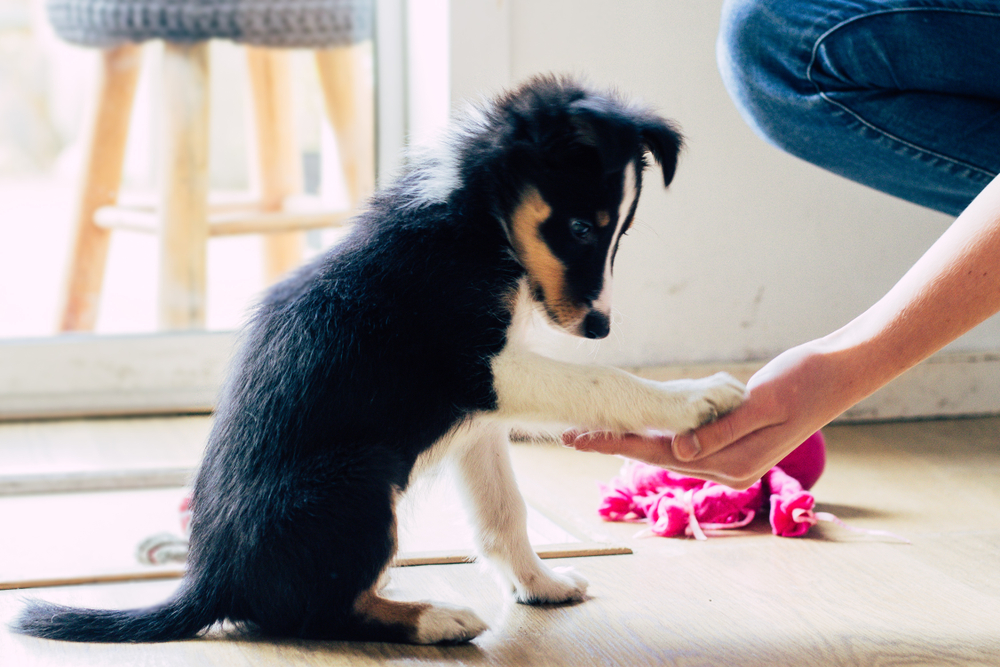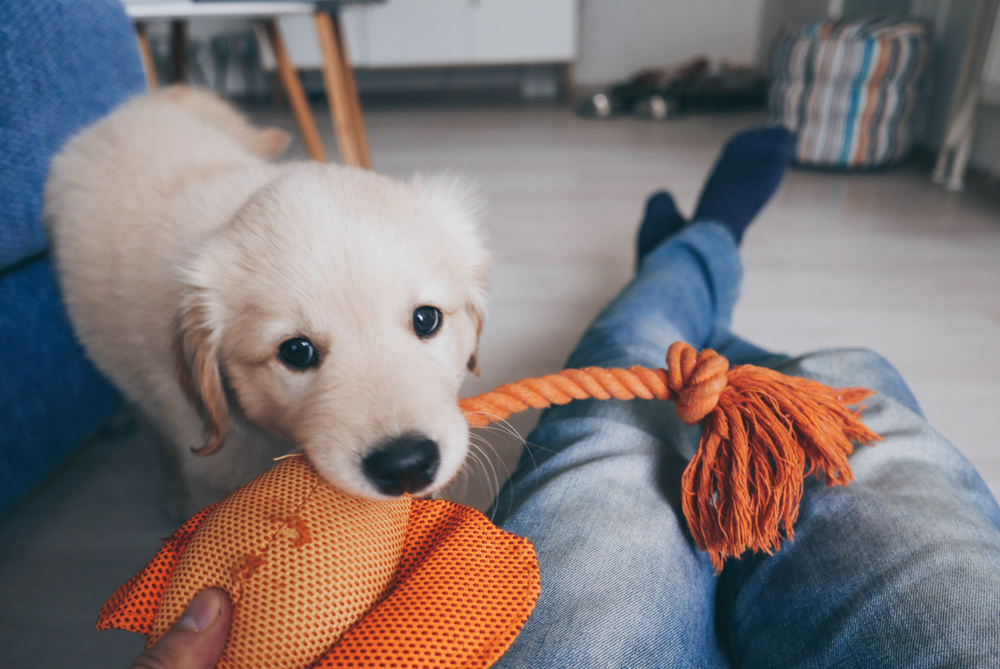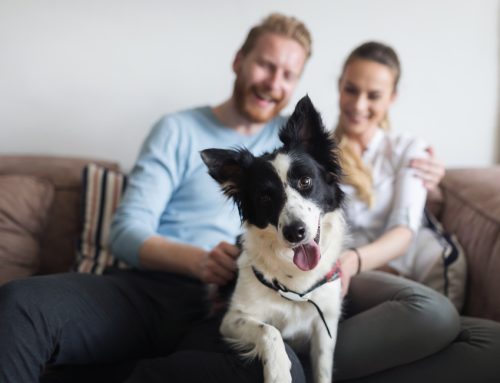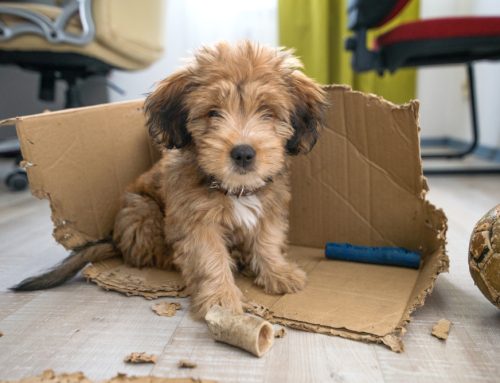Your new puppy is an exciting addition to your family, and you want to ensure that all their needs are met. The team at WesVet Animal Hospital wants to set you and your puppy up for success by offering a few tips on how to prepare for their first year.
#1: Puppy proof your home
Your job starts before you bring your puppy home. Puppies are like young children and need to be protected from themselves. Several common household items are toxic to pets, and you will need to ensure your puppy cannot inadvertently eat something harmful. Any object small enough for your puppy to swallow will need to be removed from their reach. Ingesting a sock or small toy could, for instance, result in intestinal blockage requiring surgery. All trash cans should have lids, breakables should be placed on high shelves, windows and doors should be secured, and access to stairs should be blocked.
#2: Ensure your puppy’s nutrition is appropriate
Your puppy should be given a high quality food especially formulated for puppies. Follow the label instructions for how much kibble to feed them. From 8 to 12 weeks, your puppy should receive four meals a day, or you should provide food at all times. When your puppy reaches 3 to 6 months of age, they should be fed three meals a day. After 6 months of age, two meals a day are recommended. Limit treats and human foods. Always have several fresh water bowls available, and frequently clean food and water bowls.
#3: Crate train your puppy
Providing your puppy with a small area in the house makes them feel more safe in their new surroundings. They can gradually be exposed to larger parts of your home once they get settled. Follow a crate training routine to help them become accustomed to their new safe zone. This area can become a calm place for them while you are asleep or away from home.
#4: Potty train your puppy
Crates are also useful when you are potty training your puppy. Dogs are clean animals and do not want to soil their living space. When your puppy has to go, they will begin to whine and scratch at the crate. By taking them outside immediately, you will be reinforcing the idea that they should do their business outdoors. You should also take your puppy for frequent walks. Sticking to a routine helps as well. Young puppies have tiny bladders and will need to be taken outside often:
- First thing in the morning
- Last thing at night
- After eating
- After drinking
- After playtime
- After time spent in their crate
- After napping
Praising your puppy every time they eliminate outside reinforces the behavior so they learn what areas are appropriate for their bathroom.
#5: Take your puppy to the vet
Our team at WesVet Animal Hospital would like to see your puppy within the first two weeks after you have brought them home. A thorough physical exam will be performed and their vaccine schedule can be established. They will receive vaccines at 8, 12, and 16 weeks of age. All puppies need core vaccines, which include rabies, distemper, hepatitis, parvo, and parainfluenza. Other vaccines, such as those for leptospirosis, Lyme disease, Bordetella, and influenza, are optional and may be recommended depending on your puppy’s circumstances. During this first visit, their stool will be tested for parasites, and we will discuss recommended parasite prevention methods. We can also show you techniques to perform necessary hygiene practices such as cleaning their ears, clipping their nails, and brushing their teeth. Beginning these practices when your puppy is young will help ensure their compliance.
#6: Socialize your puppy
Exposing your puppy to different people, animals, and experiences before they are 4 months old is important to ensure they grow to be a good-natured dog who is comfortable and well-mannered around other people and dogs. At this age, your puppy is not fully vaccinated and is still susceptible to infectious diseases, so you should verify the health and vaccine status of all dogs who help socialize your puppy. Puppy training classes are also wonderful for socialization. All participating puppies are required to be vaccinated, and you and your puppy can be trained on how to interact with each other to get the most out of your relationship.
#7: Spay or neuter your puppy
Your puppy should be spayed or neutered before they are 6 months old. These procedures can be safely performed as early as 6 weeks of age, but waiting until they are older is recommended for some breeds. Ensuring your puppy is spayed or neutered prevents unwanted puppies from being born and can also protect your puppy from many significant health risks.
#8: Begin basic training with your puppy

You can begin training your puppy as young as 8 weeks of age. Start by teaching your puppy their name so they know you are speaking to them when you give a command. Good behaviors to start with include learning to sit, walk on a loose leash, and come when called.
Your puppy can become a wonderful companion and friend, and starting out on the right foot by being prepared is key to having the best relationship possible. Contact our team at WesVet Animal Hospital to schedule an appointment so we can meet your darling puppy and get them started on an appropriate wellness schedule.







Leave A Comment